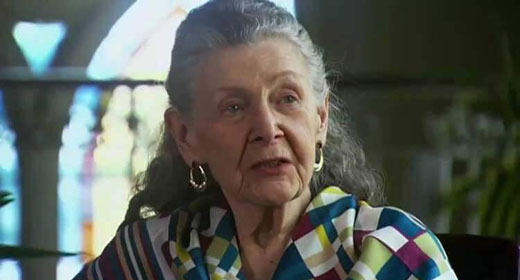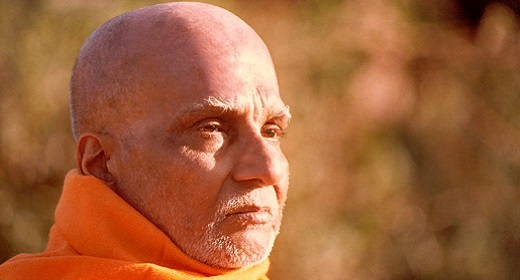by Marion Woodman: “She couldn’t be more perfect!” my colleague had exclaimed, scanning the pages of one of renowned Jungian analyst Marion Woodman’s books on the emergence of “the feminine.”

“Even reading this stuff is like stepping into another dimension.” From the beginning of our research on gender and spirituality for this issue of What Is Enlightenment?, we had known we wanted to speak with someone who could articulate the delicate balancing of masculine and feminine energies so central to Jung’s conception of the spiritual path. In Woodman, it seemed, we had hit the mark.
Internationally acclaimed for her work as a “bridge builder between the male and female worlds,” the former high school English and drama teacher has, in the twenty-five years since she enrolled in Zurich’s C.G. Jung Institute, earned a name as a renegade analyst with a rare understanding of the role of the feminine in bringing about personal and cultural transformation. Perhaps best known for her videotaped workshop with men’s movement pioneer Robert Bly, Bly and Woodman on Men and Women, she is also the best-selling author of six books, including Addiction to Perfection and Leaving My Father’s House. Her most recent work, coauthored with psychologist Elinor Dickson, is Dancing in the Flames: The Black Goddess in the Transformation of Consciousness. At the age of seventy, having analyzed more dreams than most of us have probably had, Woodman, we thought, would surely be able to bring the often enigmatic world of Jungian archetypal psychology to light.
Having spoken over the years with some of the foremost voices in today’s increasingly popular dialogue between psychology and spirituality, one thing we have learned is that whenever What Is Enlightenment? approaches a thinker firmly rooted in the ego-dominated world of the psychological, there is always a certain
amount of tension in the air. For although renowned transpersonal theorist Ken Wilber has written eloquently about the necessity of marrying Freud and the Buddha in order to achieve a truly integrated view of human development, it has been our ongoing experience that when the psychological view meets the enlightenment view, a collision of worlds is almost inevitable. Little did we know, however, when we approached Marion Woodman for an interview that, in this case, the clash would not only be one of views, but of the very forces that drive the human psyche. Nothing in our past experience could have led us to predict the ironic outcome of the interviewer’s month-long immersion in Woodman’s writings on the complex shadow world of the unconscious. As if a man possessed, our colleague became so consumed by Woodman’s emphasis on healing the ancient wounds of the ego that almost overnight he chose to completely abandon his life’s aspiration to let go of his personal history in pursuit of enlightenment—suddenly finding the temptation to identify with the demons of his past too overwhelming to resist.
We were originally drawn to this master analyst for her explanation of the difference between masculine and feminine energies in the Jungian worldview—and particularly for what she sees as the essential role of the feminine in bringing men, women and even our troubled world to wholeness. Could the mysterious black goddess that she claims is emerging in the dreams of men and women around the globe really be, as she suggests, the harbinger of a new paradigm of inclusiveness, here at last to tame the patriarchal lust for power and control that has brought us “to the brink of extinction”? We wondered.
But, as we became familiar with her view, what began to capture our interest even more than her teachings on the all-embracing nature of the archetypal feminine were the ultimate philosophical implications of her assertion that wholeness can be found only when we go beyond absolute, either/or thinking to embrace the “dance of opposites.” What, we wanted to know, is the relationship between the balancing of poles she describes and the transcendence of all duality spoken of in the great enlightenment teachings? Could the wholeness discovered through embracing and balancing the opposing masculine and feminine energies really be the same as the wholeness attained through the transcendence of all pairs of opposites, through enlightenment?
In the end, our encounter with Woodman proved to be an illuminating experience, as she showed both the genuine warmth and sensitivity one would expect from an analyst of more than two decades and the unusual elasticity of thought that has won her a reputation as one of today’s truly wise women.







































